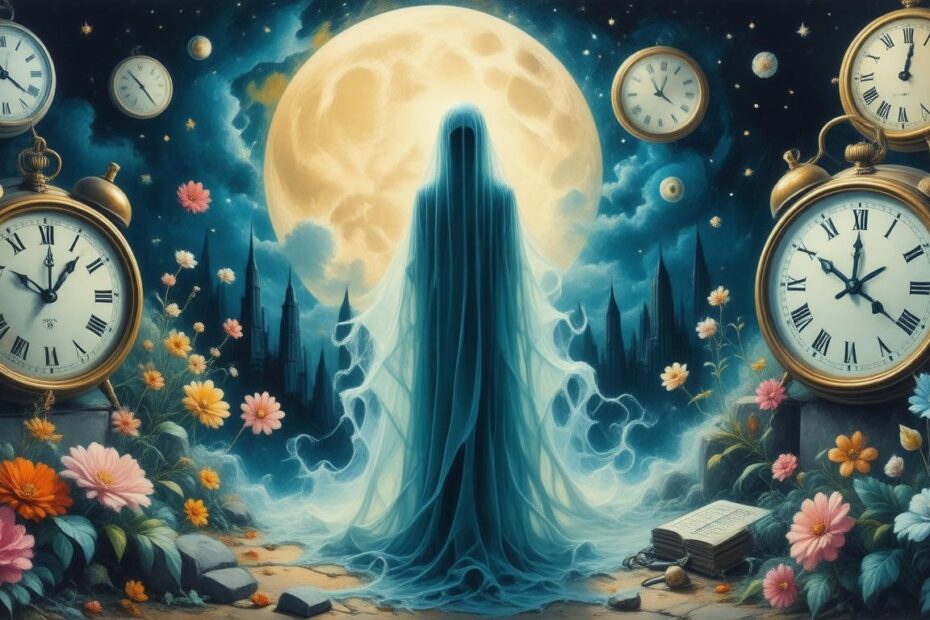🌟 Daily Awakening Quiz 🌟
Dreaming about death, especially dreaming that you are dead, can be a deeply unsettling experience. Many people find themselves grappling with the emotional aftermath of such vivid dreams, often leaving them puzzled and searching for meaning. If you’ve ever woken up from a dream where you experienced your own death, you are not alone, and understanding the potential meanings behind these dreams can offer valuable insights into your subconscious mind.
Common Themes in Death Dreams
Dreams about death rarely have literal interpretations. Instead, they often manifest as symbols representing significant changes, transitions, or emotional states in the dreamer’s life. According to Lauri Loewenberg, a certified dream analyst, dreaming of your own death could symbolize the ending of a particular phase in your life or the transformation of aspects of your identity. For instance, you might be experiencing a significant life transition, such as a career change, a significant breakup, or a move to a new place.
Psychological Perspectives on Death Dreams
As noted by Dr. Shelby Harris, a sleep expert, feelings associated with dreams about death can range from fear and anxiety to curiosity and contemplation. Such dreams can trigger intense emotions — sadness, confusion, or even panic. It’s crucial to remember that dreaming about death does not foreshadow any impending doom; rather, it reflects internal conflicts or emotions you may be processing during your waking life.
Emotional Responses During Death Dreams
When you dream about your own death, it’s common to experience a physiological response. Symptoms such as a racing heart, shortness of breath, or general feelings of distress may accompany these dreams, emphasizing their emotional weight. The impact of such dreams can linger after waking, influencing your mood and thoughts throughout the day.
Different Types of Death Dreams and Their Possible Meanings
1. Dreaming About Your Own Death
This type of dream typically signifies a transformation or a significant change in your life. It could indicate that you are letting go of old habits, relationships, or ways of thinking that no longer serve you. In essence, the dream can represent rebirth or renewal.
2. Dreaming About Loved Ones Dying
Dreaming about the death of someone close—such as a partner, parent, or friend—can signify changes in your relationship with them rather than literal interpretations of their demise. For example:
- Partner: This may suggest that your relationship is evolving or that you are perceiving them differently.
- Parent: Could indicate shifts in your relationship dynamics or reflections on your role as a parent, especially if you are grappling with parenthood issues.
- Sibling or Friend: These dreams may represent changes in these relationships or aspects of your shared identity.
3. Dreams About Children or Pets Dying
These dreams can evoke particularly strong emotional responses, as they often symbolize significant transitions. For children, such dreams may arise during pivotal milestones, reflecting parental anxieties about growing independence. For pets, the meaning may vary, but can relate to the changing dynamics of companionship and care.
Reflecting on Your Dreams
Given the symbolic nature of dreams, it’s helpful to consider personal circumstances and emotional states when interpreting death dreams. Here are some questions to reflect on:
- What significant changes are occurring in your life?
- Are you experiencing feelings of loss or anxiety about transitions?
- How do these dreams make you feel upon waking, and how might those feelings relate to your waking life experiences?
In conclusion, dreams about being dead can serve as a window into our psyche, often highlighting what we are struggling with, what we are letting go of, and what we might be ready to embrace anew. While they can evoke fear and anxiety, they are ultimately opportunities for growth and self-reflection. As you delve deeper into the meanings of your dreams, you can harness this powerful, subconscious language to foster personal growth and understanding.

